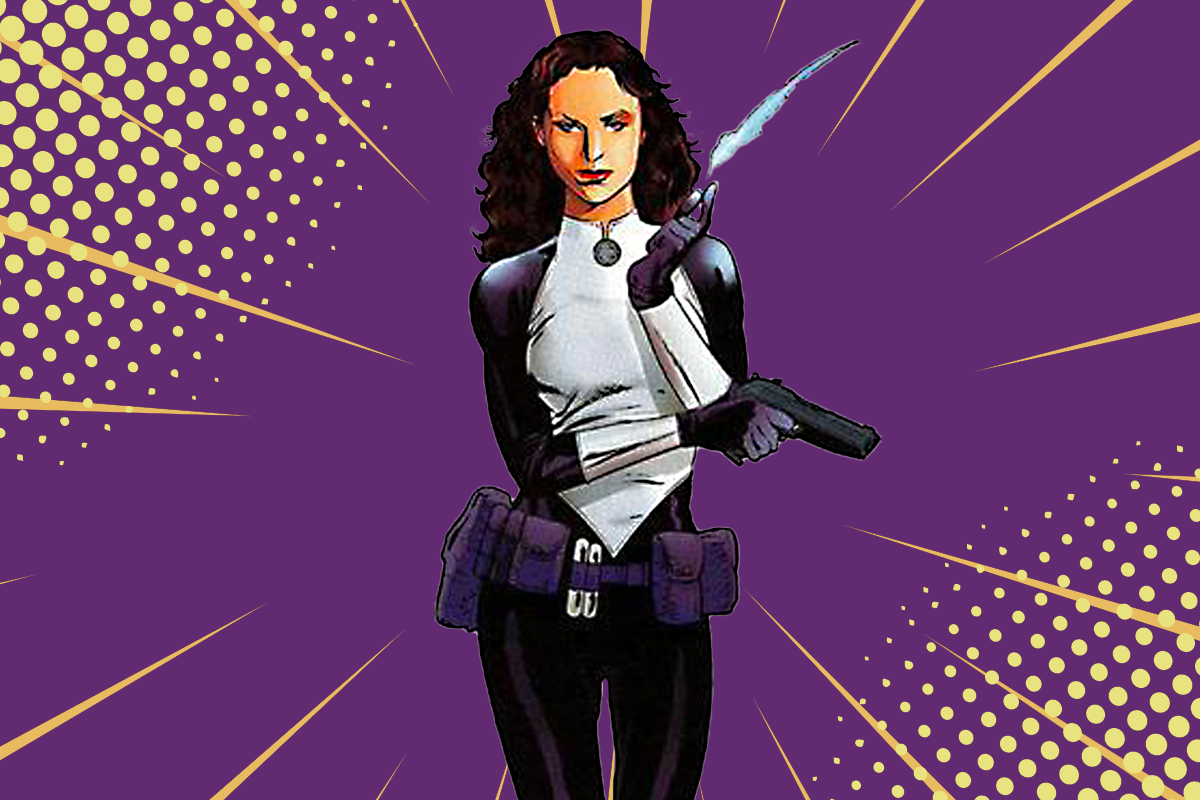Jewish Marvel fans, rejoice! We have finally gotten what we have always hoped for: a proud, explicitly Jewish superhero.
This past weekend at the biennial Disney Fan Expo, also known as the D23 expo, Disney made the surprise announcement that Israel’s very own Shira Haas, known for her central role as Esty in the Netflix show “Unorthodox,”will star in the next Captain America movie as an Israeli superhero called “Sabra.”
This character will not only be Israeli, but will also be the first explicitly Israeli character in the history of the Marvel Cinematic Universe — and only the second explicitly Jewish character after Moon Knight. Though many may recall Magneto, Quicksilver and the Scarlet Witch from the X-Men films and comics, those were not created by Disney. (In fact, Disney even erased the Jewish heritage of Quicksilver and the Scarlet Witch — known primarily as Pietro and Wanda in the MCU — in their interpretation.) Thus, in the Disney-owned era of Marvel, Haas’ Sabra will also be the first female Jewish superhero.
While not much is known about how Sabra will be portrayed yet, it is worthy to note that she is not an original character created for the MCU. In fact, her first full appearance was in comic form in “Incredible Hulk” #256 from 1981. Her alias is Sabra, but her real name is Ruth Bat-Seraph (I mean, how much more Jewish could that name be?!) and every aspect of her identity is rooted in her Jewish-Israeli backstory, ranging from the fact that she was born near Jerusalem to the fact that she served with the Mossad. Of course, there is always the chance that Marvel may not preserve this backstory in “Captain America: New World Order,” but I think it is likely some or all of this identity will remain, considering Disney’s casting choice of a famous Israeli actress. So, I’d say the chances of seeing the original Sabra on screen are pretty high.
I mean, look at her superhero alias!
“Sabra” is slang for a native-born Israeli Jew — which both she and Haas are! Combine that with her comic depictions, in which she wore the classic superhero spandex mixed with Star of David imagery, and I am pretty confident the Jewish Marvel fans in the audience will be overjoyed. I mean, when have we ever seen a Star of David painted across the chest of a superhero like Superman’s famous “S” (excluding in our dreams, of course)?
However, Sabra’s ties to the Israeli government have given many fans — Jewish and non-Jewish alike — pause.
To many Jews, representation in Disney has been sparse. While it seems that in Disney animation, diverse stories and casts are growing exponentially, it is difficult to ignore the lack of Jewish representation or even the downright questionable antisemitic animations in Disney’s past. While we had Moon Knight in the Marvel Cinematic Universe most recently, there are many who believe his depiction is insufficient. His Judaism is far from essential to his story, and the depiction of his Judaism was so subtle that many could even miss it.
To those fans, Sabra is a refreshing change. Jews are finally centered, and there is no doubt or ambiguity in her Jewish identity. But to other fans, Sabra is a symbol of something more than her Jewish roots: a troubling history in the depiction of Arab characters.
Sabra’s connection to the Israeli government is worrying to many, as is the way Arab characters were used in her storylines — often demonized, two-dimensional, minimized and regularly only named as “Arab.” Regardless of one’s personal connections to Israel or perceptions of the Israeli government, there is work that needs to be done to make Sabra a good heroine. No matter how much I personally want a badass Jewish superhero, I also understand that many would not perceive her as such in her current form.
That being said, Sabra’s flashy display of Jewishness in the comics is what makes her so appealing to Jewish fans.
Many Jews, like myself, assumed we would never receive any representation in American mainstream entertainment, like Disney, out of fear that depicting an Israeli — or even an openly Jewish character with no ties to Israel, like Moon Knight — might be perceived as “taking sides” in the Israel/Palestine conflict. To us, a barely Jewish representation of a Jewish character seemed like the most we could ever hope for. And though I will forever hold out hope for a Jewish Disney princess, Sabra may be the best thing we get for a long time, if ever. Does this make it wrong for Jewish Marvel fans to rejoice?
I personally believe that it is OK if the reason for celebration remains focused on Jewish representation rather than politics. I will, of course, hope that Disney properly adapts her story and confronts the xenophobic, if not racist, content in the comics. And I hope that Disney will give a nuanced portrayal of Sabra and those considered her “enemies,” as it is never fair to misrepresent others in the representation of yourself.
I guess we’ll simply have to wait and cross our fingers that Disney will create well-written, three-dimensional portrayals of all the characters.
In the meantime, I cannot help but smile that there is a female Jewish Disney character — and a superhero, no less — that I can dress up as for Halloween.



